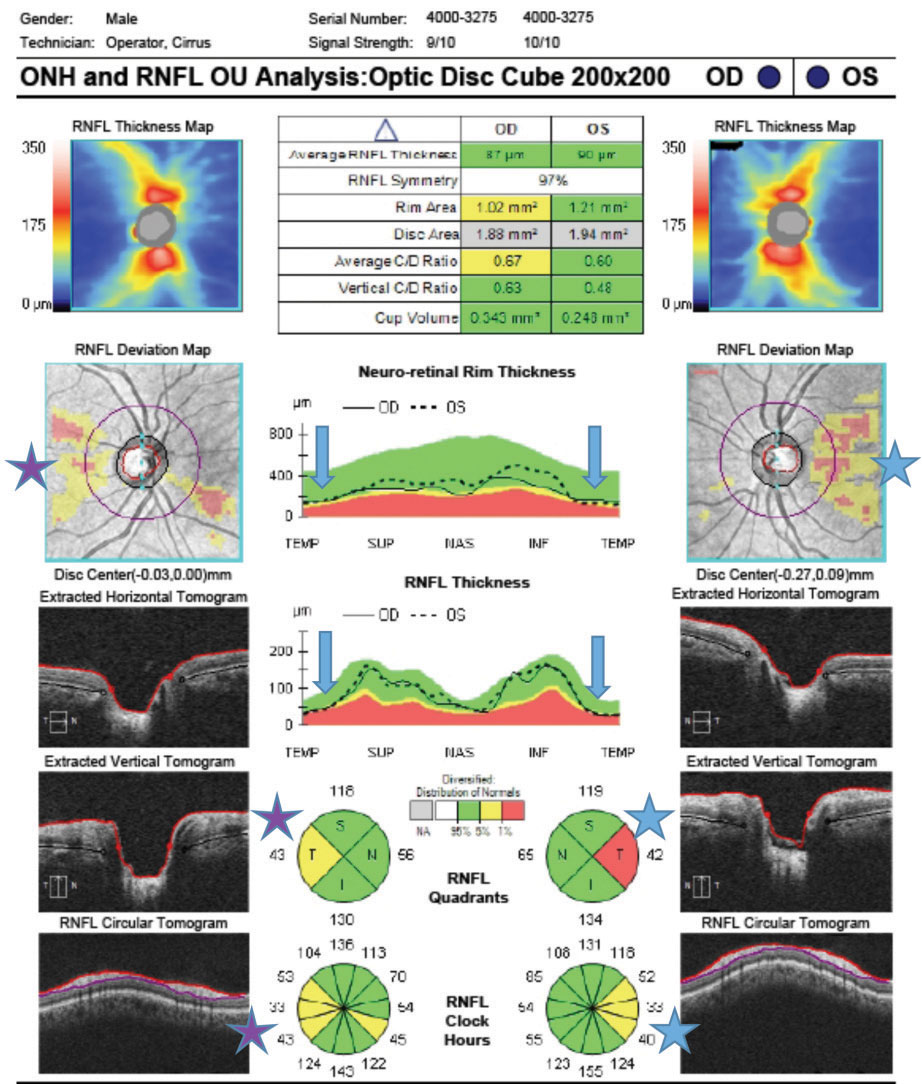 |
| This study found an association between thinner RNFLs and Alzheimer's disease in adults 60 and older. Photo: Jarett Mazzarella, OD, and Justin Cole, OD. Click image to enlarge. |
Retinal layer thickness is hypothesized to be related to cognitive function in patients with mild cognitive impairment and Alzheimer’s disease. However, longitudinal cohort studies of older healthy populations are scarce. Looking to close this gap, researchers recently found that macular retinal nerve fiber layer (RNFL) thickness can be used as a prognostic biomarker of long-term cognitive decline in adults 60 and older.
A total of 430 randomly sampled people participated in the baseline assessment, 215 of whom completed a mean of 5.4 years of follow-up. Using spectral domain OCT, the study team assessed the thickness of six retinal layers in the macular region, peripapillary RNFL and the subfoveal choroid.
Baseline macular RNFL thickness was associated with baseline Consortium to Establish a Registry for Alzheimer’s Disease score and Mini-Mental State Examination score. A thinner baseline total macular RNFL thickness (lowest quartile <231μm) was associated with a larger decline in the two test scores during the follow-up period. Furthermore, participants with baseline total macular RNFL thickness below the lowest quartile cutoff value presented a greater decline in cognitive scores and a higher prevalence of cognitive impairment and Alzheimer’s disease than those with RNFL thickness above the lowest quartile cutoff value.
“Overall, macular RNFL thickness may be considered a noninvasive ocular biomarker for assessing changes in cognitive function in patients,” the study authors concluded in their JAMA Ophthalmology paper. “However, to confirm these results, further large-scale population-based studies should be performed.”
Kim HM, Han JW, Park YJ, et al. Association between retinal layer thickness and cognitive decline in older adults. JAMA Ophthalmol. May 26, 2022. [Epub ahead of print]. |


